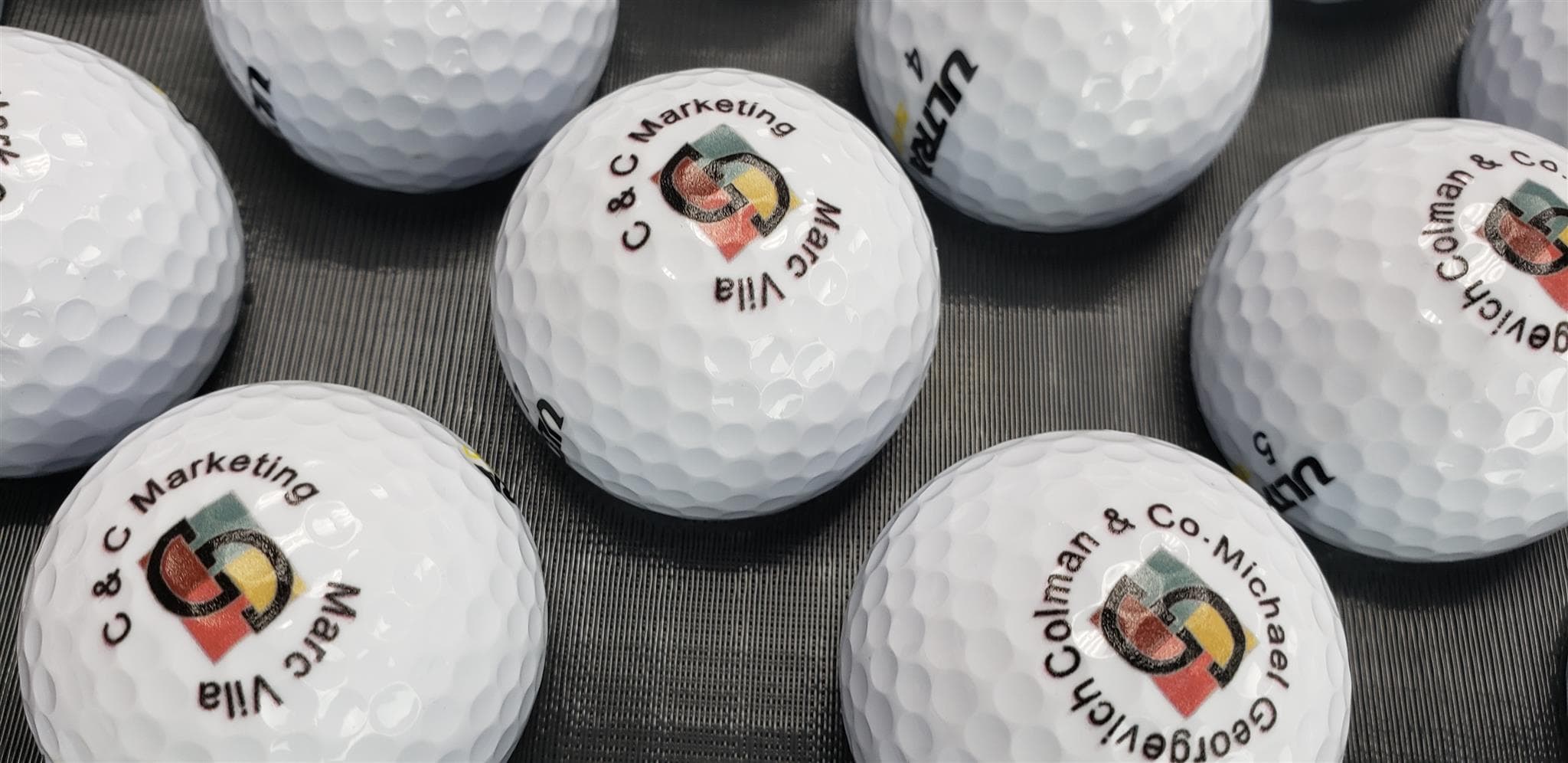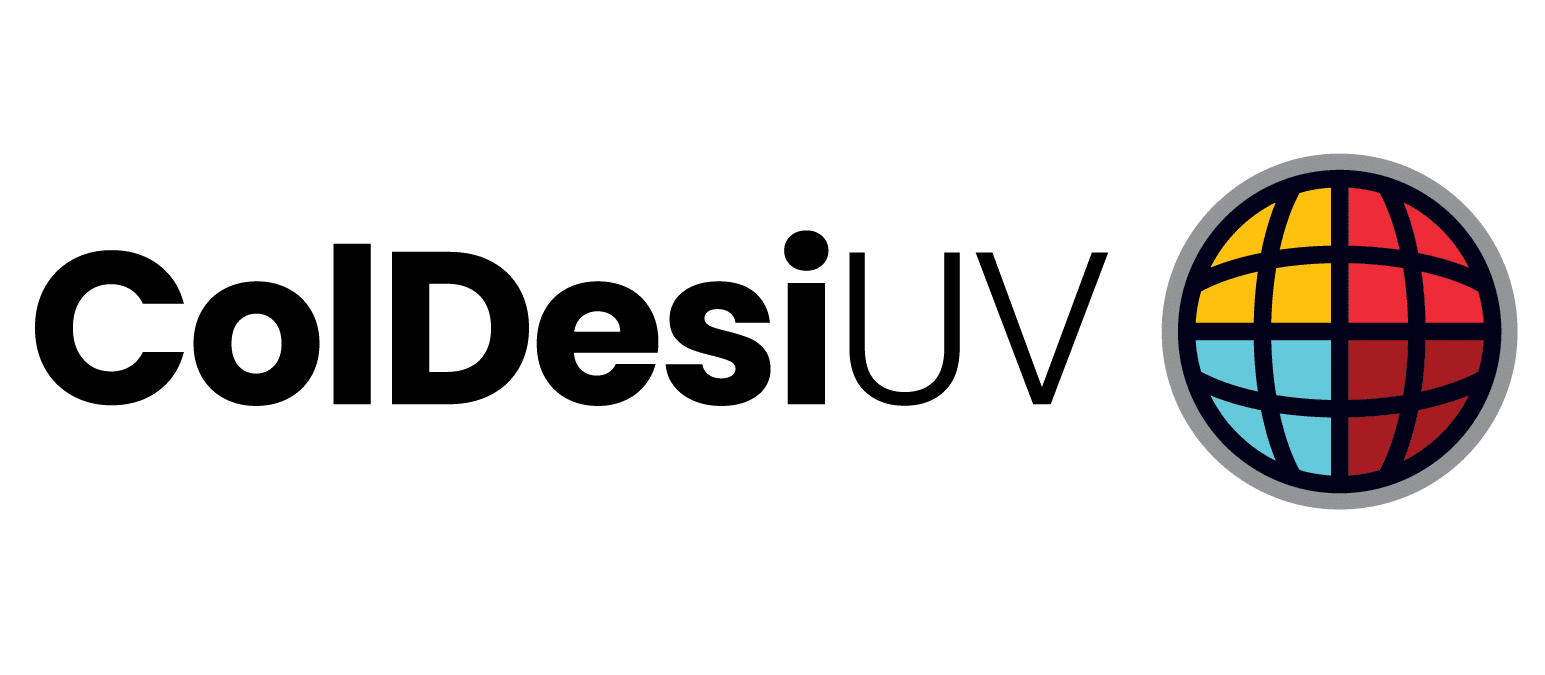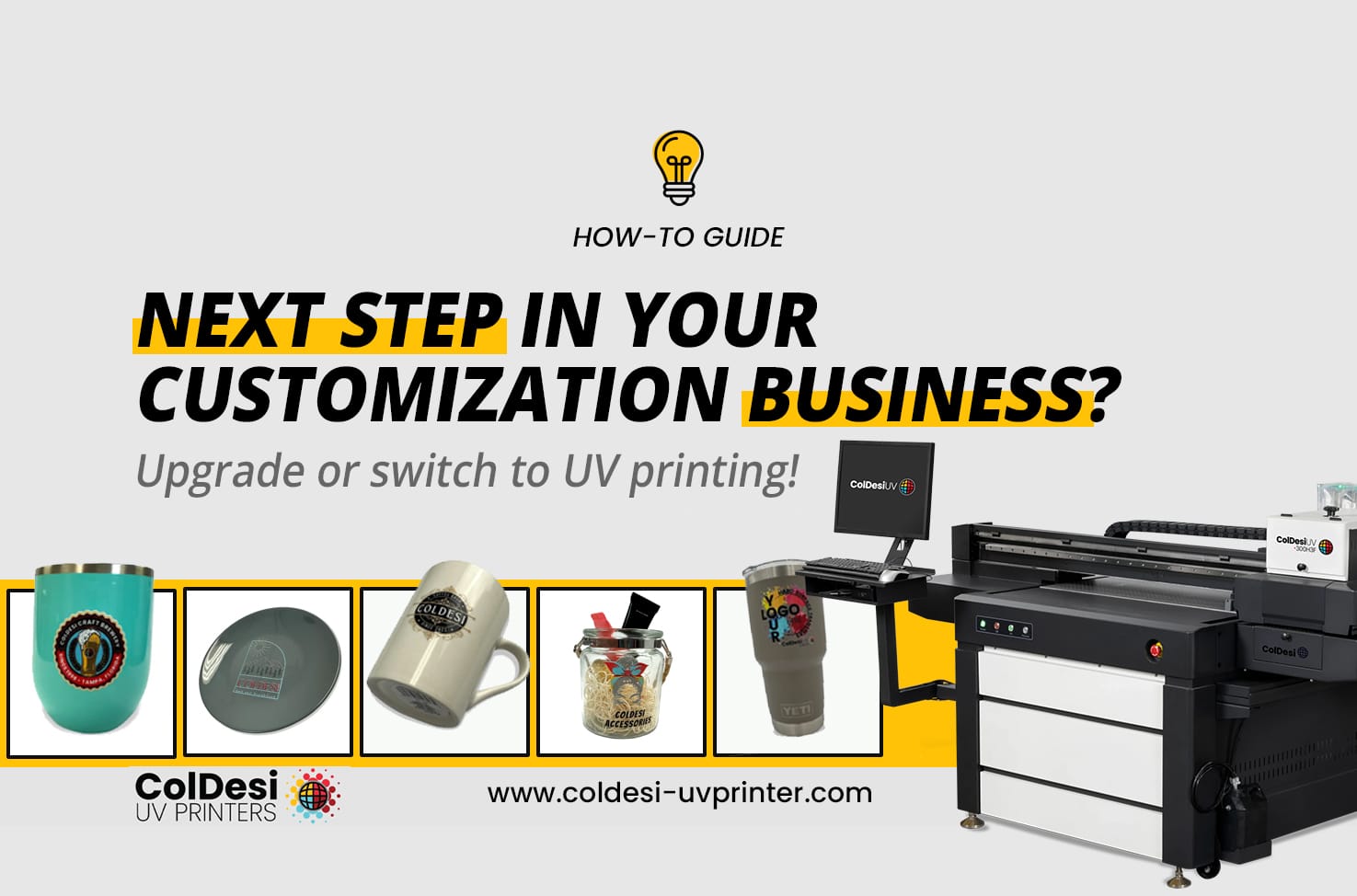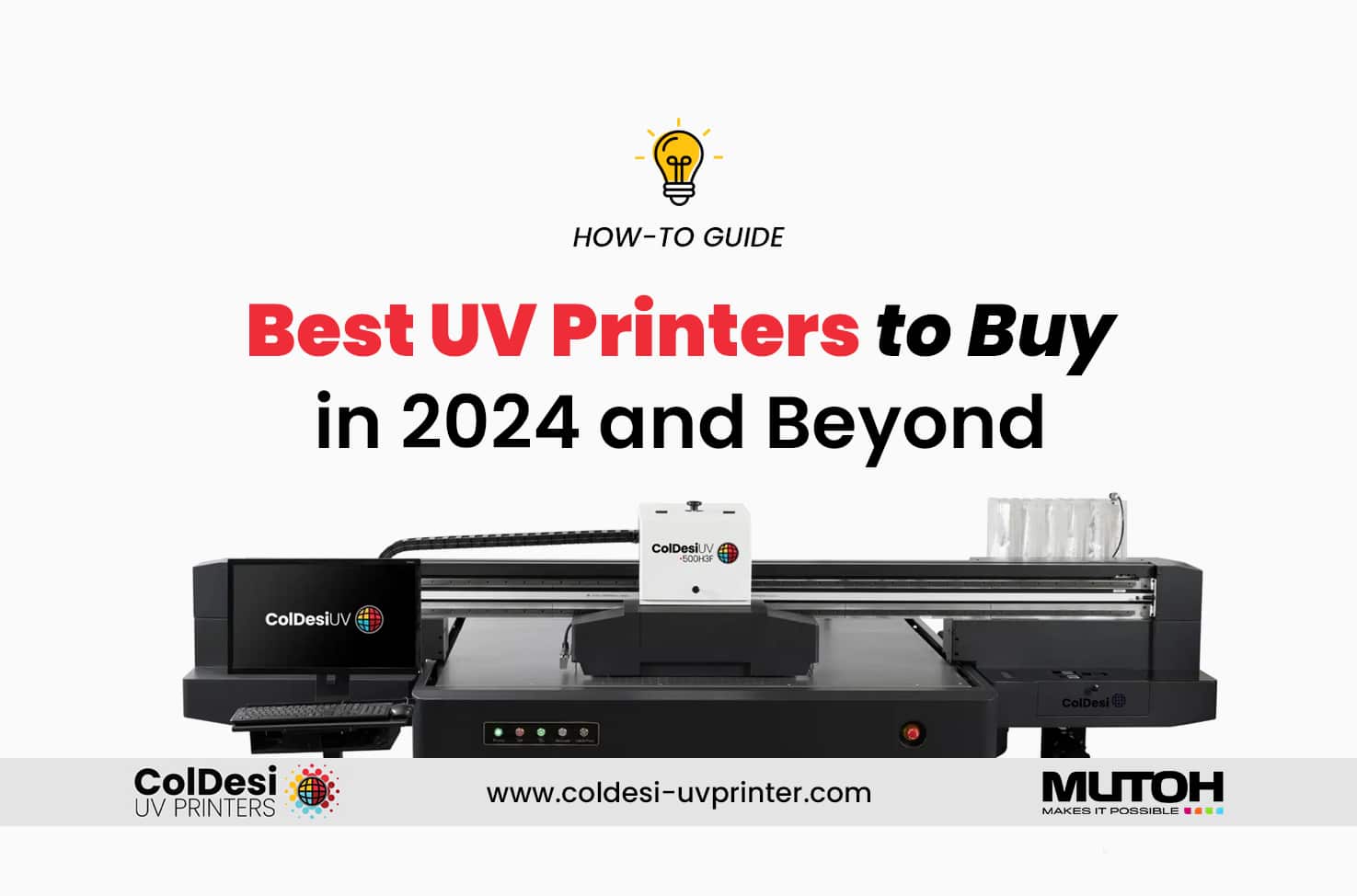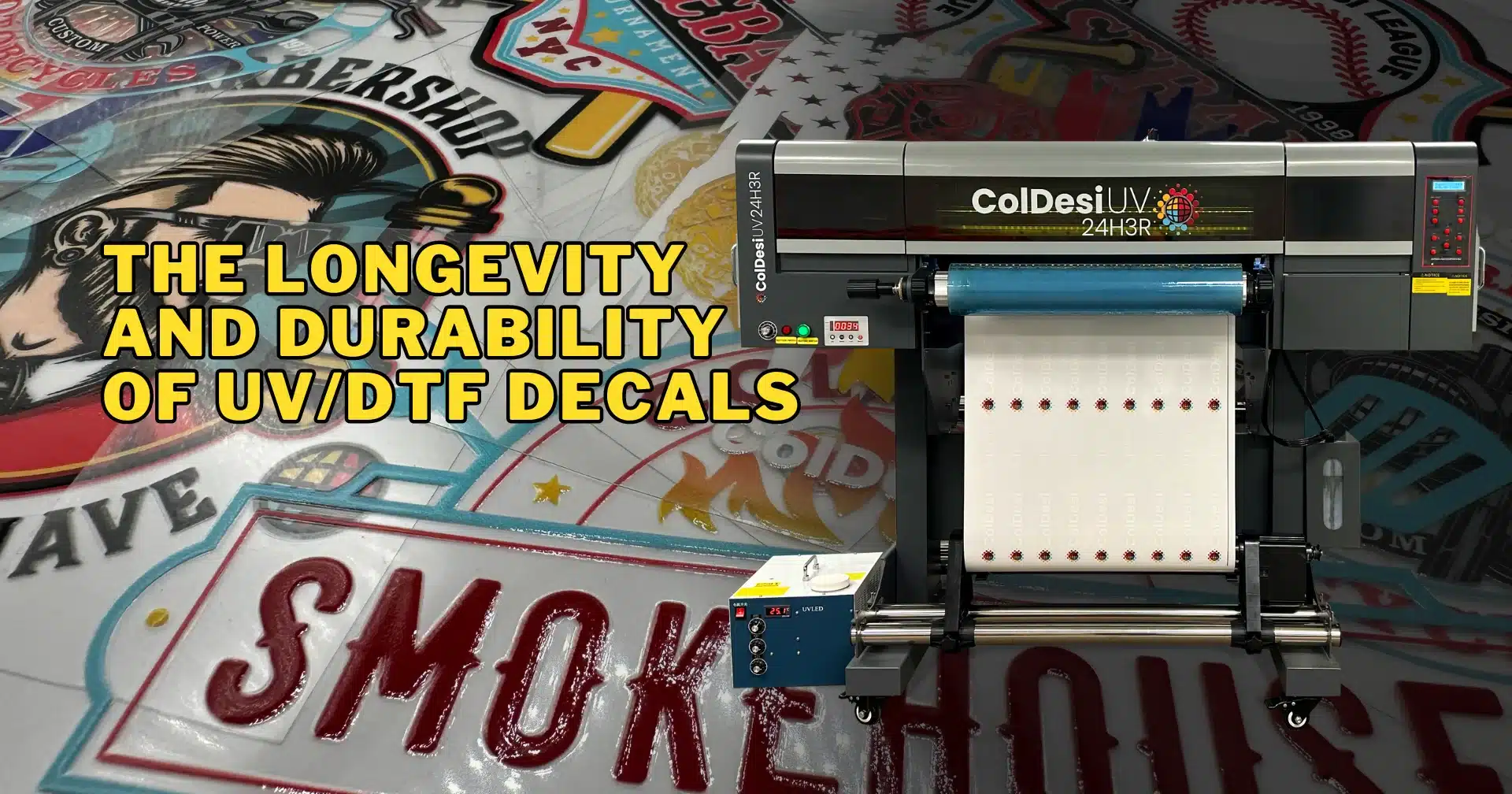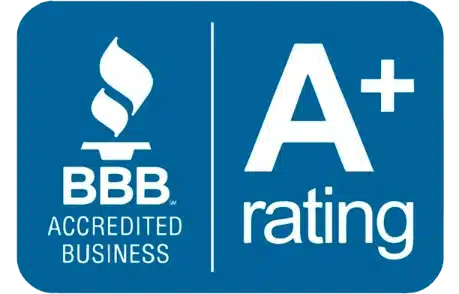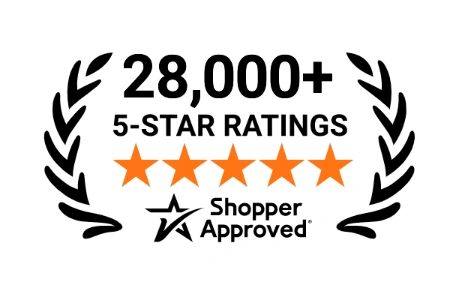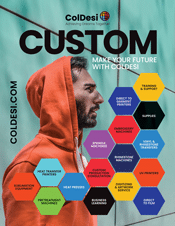Using the Compress iUV600s printer, we created name badges to showcase how the variable data on a flatbed UV Printer can be used to print name badges and other variable data objects.
We ordered plastic name badges off of Amazon (1.5 inches x 3 inches). The badges came to about $1.28 each.
Using the printer to create full-color badges, the cost of the ink was $0.006 for each badge.
Rounding that up the total material cost came to $1.30/badge.
Doing a quick online search showed that custom badges sell anywhere from $4.50-7/each, depending on the number of badges you order.
On our bed, you can fit 48 of these badges. In an hour you can print 192 badges (4 sets at 14 minutes each).
If you order badges already with a white backing, you don’t have to worry about printing a white layer first, saving you time and money.
Other than printing variable data on a flatbed UV printer, one of the only ways to produce badges would be through sublimation. With that process, you’d have to align each badge individually.
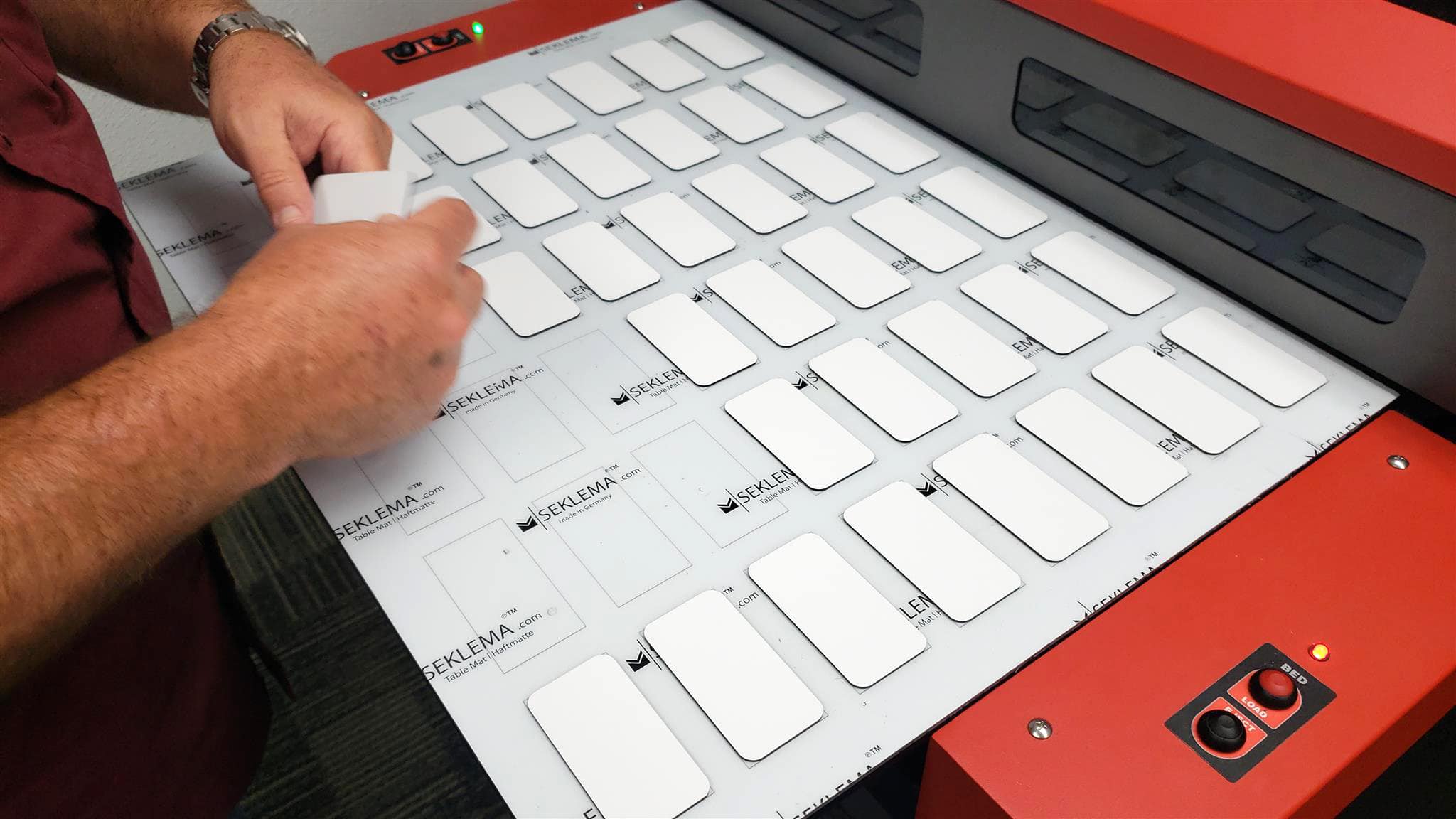
Printing the badges
To lay out the badges on the bed, using our Rip software we created a rectangle and printed it out onto the bed, for all 48 badges.
In our software, we have a background layer that is the same for all the badges. Then we have a layer of variable data – the employees name, title, and what office they work in.
Then using a database file, we can have the software pull in all the variable data in. This means we don’t have to create each badge in the software and type in the variable data. It also means we don’t have to mess with the layout when names are longer than others.
When we press the print button, the software will create pages. So, even if we have 67 badges, the software will populate the first 48 on one page and the remainder on the next.
We can tell the software to print the first page, load out the next set of badges and tell it to print the second. And so on if we had even more badges.
For more details and to watch Don Copeland demonstrate creating these name badges using variable data on a flatbed UV printer, watch our video.
Return on investment
Coming back to our numbers, the cost of materials is $1.30. Taking a middle ground, let’s say you sell them at $5/each. That’s a profit of $3.70/badge. Taking the 192 badges that the printer can produce in an hour, that’s a profit of $710.40/hour. Chances are, you can also find the name badges for cheaper than $1.28/each.
Recently, with the advent of Specialty UV Printers (such as the Compress brand of LED UV Printer’s), the interior decorator market has seen the rise of on-demand custom print ceramic tiles and printed photos on ceramic tiles.
Interior Designers have been printing on custom FABRIC for years. In fact, you can easily find established on-demand custom fabric manufacturers all over the world. But now, architects, interior designers, tile and stone wholesalers, as well as retail outlets can get great-looking custom print ceramic tiles on demand.
What else can you do?
You can emulate different textures – wood, brass, granite, etc. simply by printing. This allows the badges to have a different look while being cheaper and lighter than using those materials.
You don’t have to stick with white plastic. You can use other materials or clear plastic and print a white layer under the images and text. The machine makes a great golf ball printer as well!
And, of course, this variable data can be applied to other objects such as phone cases and other promotional products for your clients or yourself.
